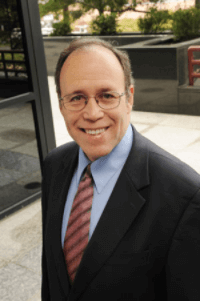
In January of 2001, I found myself on the border between Israel and Palestine with a group of beloved friends of many years: a Sufi Sheikh, an Orthodox rabbi, and several others.
The war between Palestinian youth and Israel’s armed forces had been under way for months, and many were dead. Our hearts were broken after our decades of peace work among the Abrahamic family.
We were that family, and we felt broken, but we were determined to stay at the closest spiritual level of our friendship, and to use that love to demonstrate the reality of peace instead of war, love instead of hate.
We brought that message, across a violent border, to the President of the Palestine Liberation Organization, at some risk to our safety. It was the best day of my life as we offered blessings, comfort, and a channel of communication and practical messages between military leaders who were not talking.
Ten years later in 2011, my friendships over these borders had crystallized into a determination to bring thousands of people—Israeli, American, and Palestinian—into a deep and cooperative relationship, defying all borders.
This was the brainchild of my amazing young partners, Mr. Aziz Abu Sarah, Jerusalem Palestinian, internationally renowned winner of peace prizes, and Mr. Scott Cooper. We were determined to create a way for Jews, Muslims, and Christians to visit the Holy Land, in both Israel and Palestine, and by those very visits, create more prosperity for all, especially the poor.
We wanted to give everyone an unforgettable tour into the heart of the Abrahamic Family, and in so doing, create concrete real friendships and partnerships.
We recruited our classes through George Mason University, and tours through our socially responsible company, MEJDI, that has so far brought thousands of tourists, especially through National Geographic.
Through our unique approach, we have invested more than $800,000 into the poorer sector of the economy. We have placed those funds into the hands of an equal number of Palestinian and Israeli professional tour guides, who also lead double lives as change makers and peace builders, even as they together tell the story of two peoples on every tour.
We were determined to meet everyone on all sides, no matter if they were hard line. One day on the tour was particularly difficult. We had just met a militant settler, and the Evangelical young people on the tour were especially upset by the exchange of words on justice. They loved Israel and the Jewish people—they were Evangelical after all—but the exchange hurt.
We traveled straight from that meeting to Daheishe Refugee Camp outside Bethlehem. As we walked through the streets, guided by our remarkable and courageous friend Mazen Faraj, veteran peacemaker, guide, and lifelong resident of Daheishe, our young Evangelical friends bought candy from the stores and started giving out sweets to the kids along the path. Soon we had an entourage of children laughing and talking with us.
Many of us were weeping. The children were far more therapeutic for us than we were to them as we showed them our honor and care.
That trip had a profound influence on two of the most impressive Evangelical theologians of our time, Drs. Glen Stassen and David Gushee. They subsequently wrote a courageous open letter to their fellow Christian Zionists arguing for a theology of love and care for the Jewish people, albeit in the context of the capacity to disagree, just as the Jewish prophets themselves had done thousands of years before.
Stassen and Gushee cited biblical chapter and verse that emphasize that the descendants of Abraham would be a multitude of nations. Therefore the land belongs to Arabs and Christians as well as Israelis.
Other participants went on to create their own tours to Palestine and Israel, and we have been gratified that each visit of each tour group has proven to be not only transformative, emotional, and enlightening, but it also seems to have led to some profound and innovative programs and new relationships.
This is the essential reality of historical tourism, of an embrace of the family of humanity, their stories, their glories, their pain and sorrow, and their profound disagreements.
To visit the world in this way is to honor, to support, to engage, and to be in solidarity with the peacemakers, indeed to bless them with our presence and our love.
